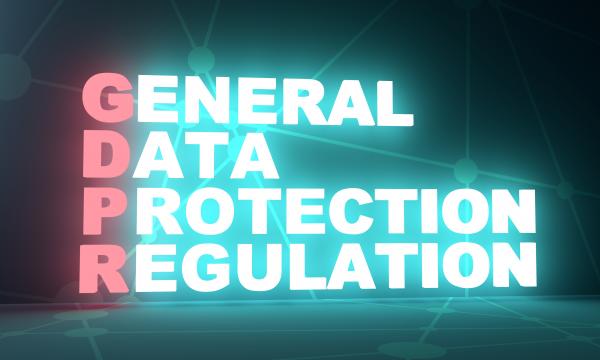
As a landlord, you want to let your property to a reliable tenant who pays their rent on-time and takes pride in their home.
And there’s no reason why that ideal person shouldn’t be someone in receipt of benefits.
But the traditional connotations of ‘No DSS’ remain for some corners of the lettings industry: they might not pay their rent regularly or might behave in an anti-social manner.
This long-held prejudice was reflected in a survey carried out in 2020 showing that 6 in 10 landlords would not, or prefer not to let, to people who receive housing benefit.
But with the number of people receiving Universal Credit now standing at more than 5 million, it’s likely that landlords will encounter claimants when looking for new tenants. And discriminating against them is becoming increasingly taboo.
Here we explain what Universal Credit is and what you need to know as a landlord to ensure you don’t discriminate against those tenants who receive it.
What is Universal Credit?
Universal Credit was first rolled out in 2013 with the aim of combining six means-tested benefits and tax credits into one single monthly payment. These are:
Introduced in stages, it’s been available in all parts of the UK since December 2018. Claimants may be eligible for it if they’re on a low income, out of work or cannot work.
While Universal Credit is now the name of the benefit tenants could be receiving, the outdated term ‘DSS’ persists. This stands for Department for Social Security which was replaced in 2001 by the Department for Work and Pensions (DWP).
Within the lettings business, ‘No DSS’ has long been used as a way of filtering out applicants who pay for all or some of their rent using benefits, regardless of whether or not they’re working or have an impeccable history of paying on-time.
This is now known as DSS discrimination and is being tackled by everyone from campaigning tenant groups to responsible letting agents and the justice system.

Can landlords refuse tenants in receipt of Universal Credit?
In a word, no. The days of seeing ‘No DSS’ on property adverts are quickly coming to an end.
This years-old practice has been justified in several ways. Alongside the concern that those on benefits might be late payers, landlords’ hands were once tied by the terms of their mortgage.
Mortgage lenders have traditionally stipulated in buy-to-let contracts that property can’t be rented out to those in receipt of housing benefits. A move which inevitably fuelled the popularity of ‘No DSS’ adverts.
Many banks and building societies, including Nat West, The Co-Operative and Nationwide, have now scrapped this policy, meaning the number of landlords able to use this as a reason has inevitably decreased.
The approach had also never been successfully challenged in court. Until a landmark ruling in July 2020, which centred on a disabled single mother who ended up in a homeless hostel after being rejected for numerous private rental properties.
Historically, the legal dilemma regarding placing these restrictions has hinged on whether they amount to direct or indirect discrimination. The focus here was on the fact that the Equality Act 2010 doesn’t include income and employment status as protected characteristics, i.e. direct discrimination.
At the historic hearing in York, the judge ruled that the letting agent who had refused the mother’s application because she was in receipt of benefits had contravened the Equality Act.
District Judge Victoria Elizabeth Mark said: “The Defendant’s former policy of rejecting tenancy applications because the applicant is in receipt of Housing Benefit was unlawfully indirectly discriminatory on the grounds of sex and disability contrary to sections 19 and 29 of the Equality Act 2010.”
The ruling centred on the fact that women and those with disabilities are disproportionately more likely to be in receipt of benefits and therefore disproportionately affected by blanket ‘No DSS’ bans.
Shelter said the case was “a clear warning to other landlords and letting agents that they risk legal action if they continue to bar housing benefit tenants from renting”.
And chief executive Polly Neate added that the momentous ruling “should be the nail in the coffin for ‘No DSS’ discrimination”.
She continued: “It will help give security and stability to people who unfairly struggle to find a place to live just because they receive housing benefit.”
Responding to the case, Chris Norris, Policy Director for the NRLA, said: “No landlord should discriminate against tenants because they are in receipt of benefits. Every tenant’s circumstance is different and so they should be treated on a case-by-case basis based on their ability to sustain a tenancy.”
Landlords must now be aware of the consequences of the case and, now a precedent has been set, the increased likelihood of legal action being taken if they continue to discriminate.
What you can do if you still have concerns
If your fingers have been burned in the past, you might be nervous about renting to a tenant on benefits.
Keep in mind that you are still protected by legislation such as Section 8 which can be used if your tenant falls into arrears or causes problems with anti-social behaviour.
You can also use what could be seen as ‘positive discrimination’ by doing an affordability check before finalising the tenancy agreement.
The reference check will include information from the tenant’s employer to show they can afford the rent based on their salary. You can set a threshold here, such as annual income being at least 30x the monthly rental amount.
For unemployed applicants, you can request to see bank statements and suggest they appoint a guarantor to cover their rent payments if they’re unable to pay them.
Credit checks will give you further reassurance that your tenant will pay rent reliably.

Using the Direct Payments scheme
Most Universal Credit claimants will pay rent directly to their landlord. Their monthly benefits payment includes an amount allocated to contribute to housing costs, such as rent and service charges.
It’s a good plan to encourage tenants to set up a monthly Direct Debit from their bank account to yours. This means they can stay organised while you enjoy the reassurance that the expected amount will arrive on the expected date.
But there are numerous reasons why your tenant may struggle to pay their rent. If they’re unemployed, the money they receive to pay for housing may not be enough to cover the full amount. Which will of course impact on your income as a landlord.
The first strategy to solve the issue is communication. When landlords and tenants chat through the specific circumstances, you’re more likely to come up with a mutually beneficial solution.
However, you may decide you need to formally guarantee regularly receiving the rent. This can be done by requesting an Alternative Payment Arrangement (APA), such as a Managed Payment to Landlord (MPTL). A successful application results in the payment being made directly to the landlord from the DWP.
These are available to tenants who are finding it difficult to meet their rent obligations and can be requested by either the tenant or the landlord. Each request is considered on a case-by-case basis with factors such as addiction problems, mental health issues or learning difficulties considered. An ASA can also be requested to deal with cases of rent arrears.
Landlords who wish to request an ASA can do so via a dedicated online portal. If the application is refused, the DWP cannot tell you the reason why due to confidentiality and data sharing regulations.
Another alternative is to advise your tenant to speak to their local authority about a discretionary housing payment. This will give them additional financial support so they can meet a rent shortfall.
When you understand the ins and outs of Universal Credit from a landlord’s perspective, you’ll be helping build your reputation as a responsible landlord and opening the door to your property to a wider pool of trustworthy tenants.
Got a question about Universal Credit? Ask a friendly expert at MakeUrMove via our live chat service.









